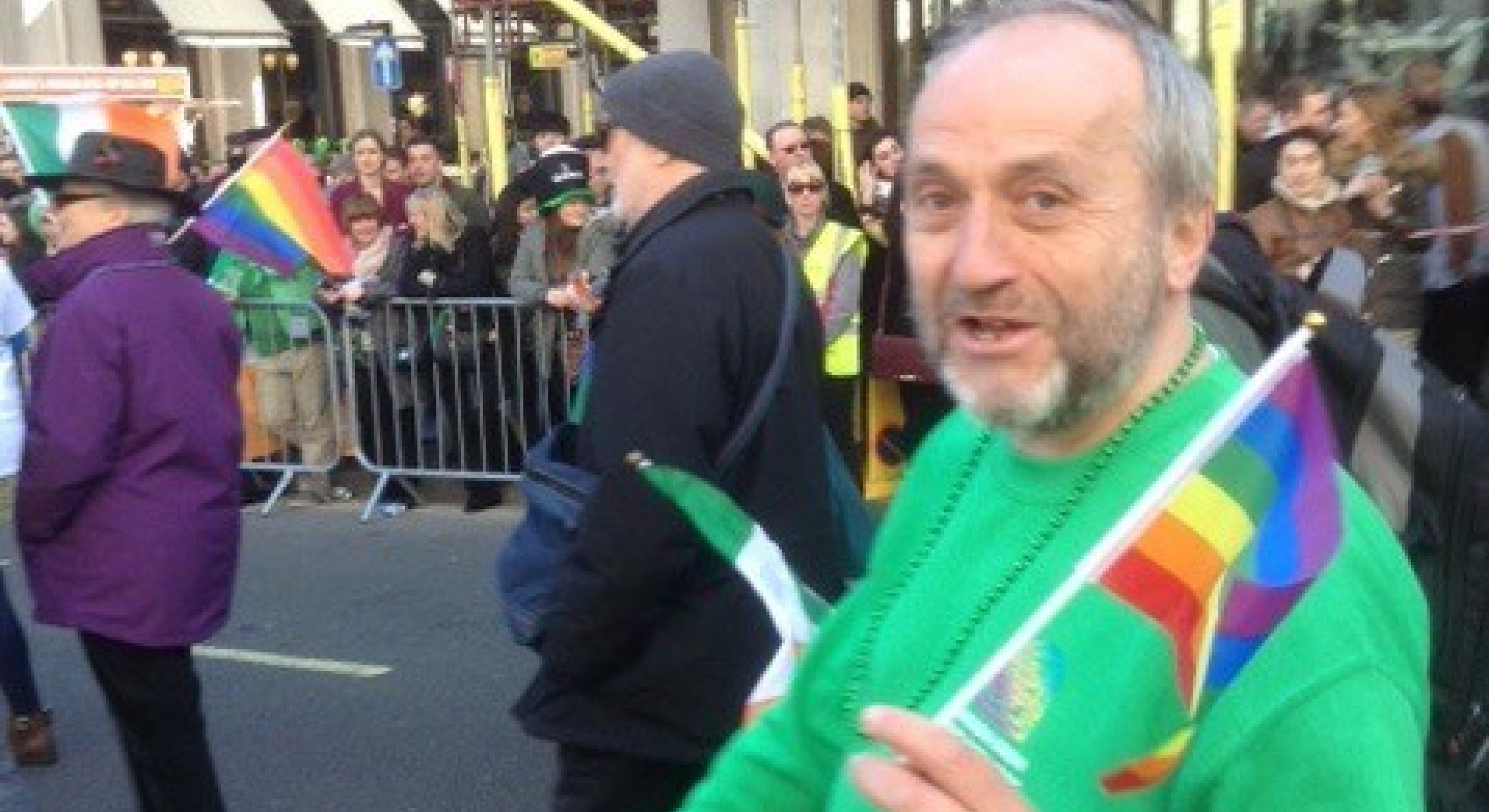What’s your background, where did you grow up?
I grew up in Dublin and my parents were both Dubliners and I was born between the canals so I am a true blue Dub!
What brought you to England?
I came to England in the 80s during one of the most terrible economic crises that Ireland had suffered with 25 percent unemployment. But I did not come for economic reasons, but because I felt as a gay man that there was no place in Ireland for me and that the social situation in Dublin at the time made a relationship for someone like me who was out and proud impossible.
What was life like for an LGBT person in Ireland when you left?
Things were bad in Dublin at the time but far worse outside. There were two pubs and a disco and most people were very closeted and many leading double lives. Of course, homosexuality was still illegal until 1993.
I actually left Ireland in 1983 which historian Maurice Casey has described as Ireland’s Stonewall Year marked by the protest march to Fairview Park, which I was on. This was a protest against the courts acquitting a gang of homophobic murderers who had killed Declan Flynn, who I actually knew. All of this created a very dark atmosphere at the time.
When you emigrated how did you find life in England being Irish and LGBT?
I arrived in London homeless and virtually penniless as many young Irish immigrants were at that time. I was lucky in that I had a network of a few gay people I had got to know and after a while sofa surfing, I ended up as a squatter living in a council estate in Elephant and Castle.
Several years later RTE made a documentary about young Irish immigrants in London and filmed squatters on the estate where I lived. I always describe the Irish experience in England as before and after Riverdance, when we became fashionable. This was definitely before Riverdance, the bombings were still going on and there was deep seated anti–Irish prejudice and you also found that in the gay scene. The gay writer Colm Clifford from Ireland documented this in his plays.
What changes do you think there has been in attitudes to LGBT people in the last 20 years or so, in Britain and in Ireland?
Huge changes mainly for the better. Far less people living in the closet or drinking heavily because they cannot deal with their sexuality. Less direct homophobia, name calling and homophobic violence etc but hate crime still exists. Also people are now out with their families and have that support for the most part. But also negative changes there is less community and many venues are closing leading to an increase in isolation and atomisation.
The AIDS crisis led to a huge rise in support within the community and a lot of that has been lost. Of course, the legislative changes are also highly important.
You are active in your trade union, how important has the trade union movement been in taking up issues of equality?
Trade unions are very important in support equalities at work. I am an equalities rep for UNITE in my workplace and also sit on the LGBT committee of the union for London. The unions are very involved in lobbying on LGBT issues and my union for example, has decided to only support Prides in our region which are open and free to all. These include community prides and Black Pride.
What do you think has helped generate change?
I think that the role of veterans like myself, I was involved in the early LGBT movement in Ireland in the 80s, is really important as we started the ball rolling. Also there are far more role models now than there were when I was young and you can see the changes in that drag, for example, is now hugely popular. The process of coming out and more people knowing family members and friends who are LGBT is really significant.
I always celebrate History Month and as a historian I recognise its importance. I will be playing a role myself this year under the auspices of my union, UNITE, in looking at the Irish LGBT experience. This is something we did with Irish in Britain at a joint conference with the London Irish LGBT Network last year.
I see my Irish identity as important as my gay one and want to continue to build links between the two communities.
Joseph will be giving a presentation on gay life in Ireland in the 1980s alongside a screening of the RTE documentary from the period at an event and reception for LGBT history month hosted by UNITE the Union at its regional HQ in London.
6.30pm Thursday 28 February, 33–37 Moreland St, Clerkenwell, London EC1V 8BB
